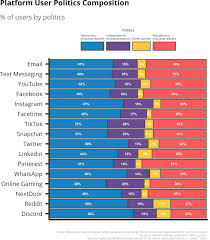
Introduction
In today’s digital age, social media platforms play a crucial role in shaping public discourse and political landscape. Among these platforms, left leaning social media sites are becoming increasingly prominent as they cater to progressive ideologies and amplify voices often marginalized in mainstream channels. Their significance cannot be overstated, especially in a climate where societal issues and political polarizations are at the forefront.
What Are Left Leaning Social Media Sites?
Left leaning social media sites are platforms that tend to promote liberal or progressive values, often focusing on issues such as social justice, environmental concerns, and equality. Examples include sites like Tumblr and certain groups within platforms like Reddit that create safe spaces for discourse on leftward ideologies. The rise of these platforms has been notably accelerated by disillusionment with mainstream media and the desire for communities where individuals can express their beliefs without fear of backlash.
Recent Developments
In recent months, left leaning social media sites have seen a surge in user engagement, particularly among younger demographics. This shift can be attributed to various events, including social movements like Black Lives Matter and climate activism, which have galvanized many individuals to seek out platforms that align with their values. Additionally, a wave of political elections in North America and beyond has fueled discussions on these sites as they serve as rallying points for progressive causes.
Impact on Political Discourse
The impact of left leaning social media sites on political discourse is significant. These platforms often facilitate grassroots organizing and mobilization, providing tools for users to connect and advocate for issues they care about. For example, many demonstrations and campaigns have been coordinated largely through these networks, enabling swift action and community support. However, this can also lead to echo chambers where divergent viewpoints are unwelcome, sparking debates on freedom of speech and censorship.
Conclusion
As left leaning social media sites continue to grow and evolve, they are reshaping how political conversations unfold online. Their relevance is likely to persist as societal issues gain prominence and users seek spaces that reflect their values. As these platforms navigate the complexities of moderation and the spread of misinformation, their role in the broader social media landscape will be pivotal. Readers must stay informed about these developments, as they highlight a transforming aspect of modern communication and civic engagement.



